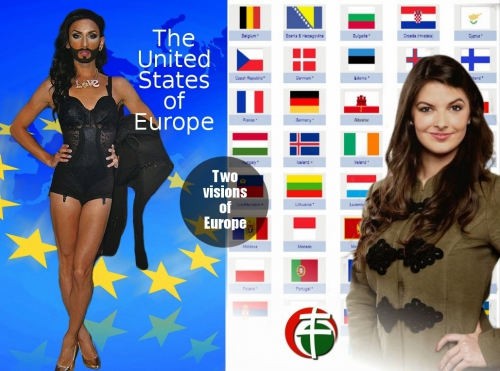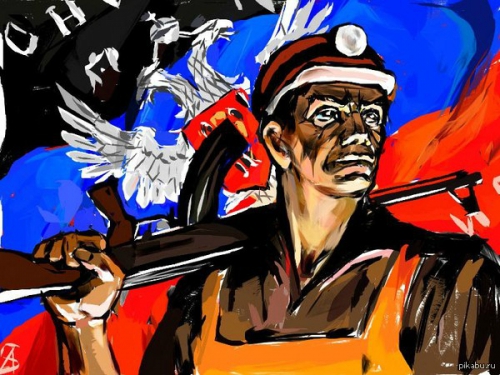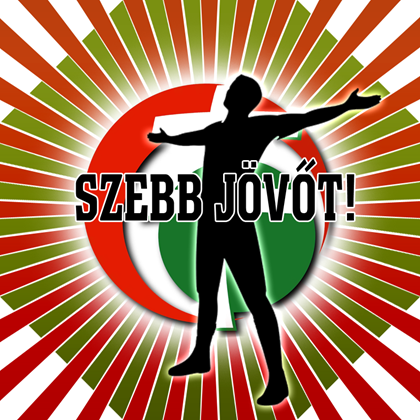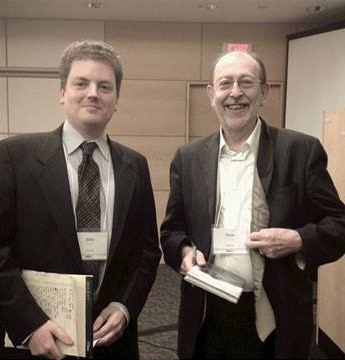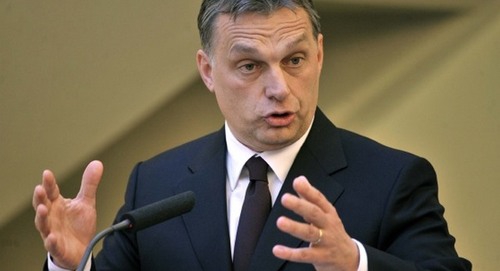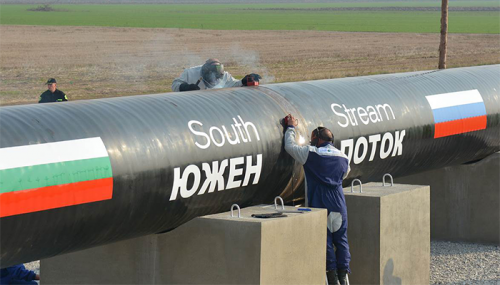
L’UE prend parti pour les juges rebelles en Pologne au nom de l’État de droit et de la démocratie
En effet, le 8 avril dernier (soit un mois avant la date originellement prévue pour l’élection présidentielle polonaise), la CJUE répondait favorablement à une demande de la Commission européenne en délivrant une ordonnance provisoire censée « geler » la Chambre disciplinaire créée au sein de la Cour suprême polonaise (qui est une cour de cassation) dans le cadre de la réforme judiciaire adoptée en 2018 par le Parlement dominé par le parti Droit et Justice (PiS) de Jarosław Kaczyński et sa coalition Droite unie (une majorité absolue reconduite à la chambre basse du Parlement lors des élections législatives d’octobre 2019). La dispute autour de cette Chambre disciplinaire entre dans le cadre d’un conflit plus large concernant la façon dont sont nommés les quinze juges siégeant au Conseil national de la magistrature (KRS), car c’est le KRS qui présente au Président polonais un choix de candidats à la Chambre disciplinaire. Depuis la réforme du KRS adoptée en 2018, ces quinze juges (sur 25 membres du KRS au total) sont nommés non plus par d’autres juges mais par le Parlement, ce qui signifie que la majorité parlementaire PiS est désormais à l’origine de la majorité des nominations au KRS. Ces membres choisis par le PiS ont donc eu une voix décisive quant aux candidatures soumises au président Andrzej Duda (qui vient lui aussi du PiS) pour siéger à la Chambre disciplinaire. Il convient toutefois de préciser que, si elle stipule qu’il doit y avoir 15 juges parmi les 25 membres du Conseil national de la magistrature, la Constitution polonaise laisse au Parlement le soin de déterminer la façon dont ces juges doivent être nommés, et le Tribunal constitutionnel polonais a confirmé en mars 2019 que la procédure de nomination des membres actuels du KRS était conforme à la Constitution.
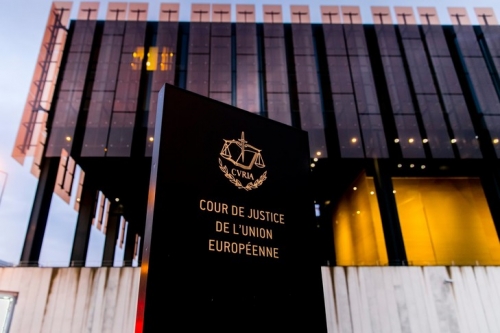
Pourtant, certains juges polonais remettent en cause la légitimité de ce KRS réformé et de la Chambre disciplinaire nouvellement créée à la Cour suprême. La juge Małgorzata Gesdorf, première présidente de la Cour suprême qui s’est engagée activement depuis 2017 contre les réformes de la justice adoptées par le Parlement (y compris en prenant part à des manifestations organisées par l’opposition), a publiquement demandé aux juges de la Chambre disciplinaire de ne plus rendre de jugements plusieurs mois avant l’arrivée à terme de son propre mandat de première présidente le 30 avril dernier. Le président de l’association de juges Iustitia a annoncé pour sa part qu’il ne comparaîtrait pas devant la Chambre disciplinaire, alors qu’il avait été convoqué pour son militantisme politique (les juges en Pologne n’ont pas le droit de faire de la politique de manière publique). Pire encore, certains juges de rang inférieur siégeant dans les tribunaux locaux ont prétendu pouvoir contester les décisions rendues par d’autres juges dont la nomination avait été proposée au président de la Pologne par le KRS réformé, car ils considèrent que ces nominations n’avaient pas été faites de manière valide, le KRS réformé ne jouissant pas de la légitimité nécessaire à leurs yeux (en vertu de leur propre interprétation de la Constitution, chose pourtant normalement réservée au Tribunal constitutionnel). Même si en vertu des traités européens l’organisation du pouvoir judiciaire est normalement une compétence souveraine de chaque État membre, en août 2018 un groupe de juges polonais rebelles siégeant à la Chambre du travail et des assurances sociales de la Cour suprême a envoyé à la CJUE une série de questions préjudicielles portant sur les réformes du PiS dans une affaire sans lien direct avec ces questions, ce qui est une pratique interdite par le droit européen. Dans un jugement rendu en novembre 2019, la Cour de justice a déclaré que c’est à la juridiction de renvoi, en l’occurrence à la Chambre du travail et des assurances sociales près la Cour suprême polonaise, « de vérifier si la KRS offre ou non des garanties suffisantes d’indépendance à l’égard des pouvoirs législatif et exécutif ».
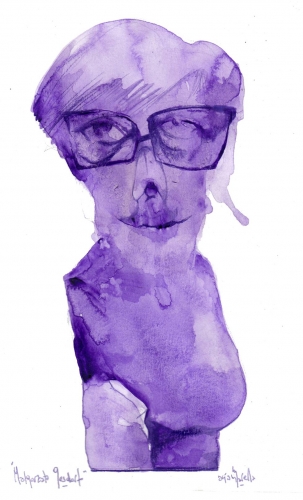 Ce jugement avait de quoi surprendre, car en droit polonais seul le Tribunal constitutionnel a cette compétence, et les traités européens n’autorisent pas la CJUE à attribuer une telle compétence à un autre organe judiciaire d’un État membre. Néanmoins, prétendant se fonder sur cette décision de novembre de la CJUE, la première présidente de la Cour suprême Małgorzata Gesdorf (dessin, ci-contre)a convoqué le 23 janvier une audience rassemblant trois des cinq chambres de la Cour suprême, soit environ la moitié de tous les juges de la Cour suprême, afin d’adopter une résolution par laquelle toutes les décisions prises par la Chambre disciplinaire étaient déclarées non valides et tous les juges nommés par le Président Duda sur la base des candidatures présentées par le KRS réformé devaient cesser de prononcer des jugements, cette résolution de la Cour suprême affirmant que les réformes votées par le Parlement en 2017-18 violaient le droit européen, à savoir le principe d’indépendance de la justice mentionné en termes généraux dans les traités européens. La présidente de la Diète (la chambre basse du parlement polonais) a donc saisi le Tribunal constitutionnel sur la question des compétences respectives du Parlement et de la Cour suprême. Les juges constitutionnels ont alors suspendu à titre provisoire la résolution de la Cour suprême avant de constater dans un arrêt définitif rendu le 20 avril que la résolution adoptée le 23 janvier à la Cour suprême violait à la fois la Constitution polonaise et le droit européen et n’avait donc aucun effet.
Ce jugement avait de quoi surprendre, car en droit polonais seul le Tribunal constitutionnel a cette compétence, et les traités européens n’autorisent pas la CJUE à attribuer une telle compétence à un autre organe judiciaire d’un État membre. Néanmoins, prétendant se fonder sur cette décision de novembre de la CJUE, la première présidente de la Cour suprême Małgorzata Gesdorf (dessin, ci-contre)a convoqué le 23 janvier une audience rassemblant trois des cinq chambres de la Cour suprême, soit environ la moitié de tous les juges de la Cour suprême, afin d’adopter une résolution par laquelle toutes les décisions prises par la Chambre disciplinaire étaient déclarées non valides et tous les juges nommés par le Président Duda sur la base des candidatures présentées par le KRS réformé devaient cesser de prononcer des jugements, cette résolution de la Cour suprême affirmant que les réformes votées par le Parlement en 2017-18 violaient le droit européen, à savoir le principe d’indépendance de la justice mentionné en termes généraux dans les traités européens. La présidente de la Diète (la chambre basse du parlement polonais) a donc saisi le Tribunal constitutionnel sur la question des compétences respectives du Parlement et de la Cour suprême. Les juges constitutionnels ont alors suspendu à titre provisoire la résolution de la Cour suprême avant de constater dans un arrêt définitif rendu le 20 avril que la résolution adoptée le 23 janvier à la Cour suprême violait à la fois la Constitution polonaise et le droit européen et n’avait donc aucun effet.
Pour ajouter à la confusion, le 20 avril, soit 10 jours avant la fin de son mandat de première présidente de la Cour suprême, la juge Małgorzata Gesdorf délivrait un arrêt en vertu duquel elle transférait toutes les affaires confiées à la Chambre disciplinaire aux autres chambres de la Cour suprême. Mme Gesdorf justifiait sa décision en brandissant l’ordonnance provisoire du 8 avril de la CJUE, alors que les décisions de la CJUE ne peuvent pas s’appliquer directement (il aurait fallu un vote du parlement polonais pour mettre en œuvre l’ordonnance provisoire de la CJUE, c’est-à-dire pour suspendre l’application de la loi ayant décidé de la création de ladite Chambre disciplinaire). Le 5 mai, cet arrêt était annulé par le premier président par interim de la Cour suprême polonaise, Kamil Zaradkiewicz. Conformément à la Constitution polonaise, le juge Zaradkiewicz a été nommé par le président Andrzej Duda pour conduire la procédure d’élection du prochain premier président de la Cour suprême, Małgorzata Gesdorf n’ayant pas conduit cette élection avant la fin de son mandat.
Toutefois, de même que la Commission Juncker auparavant, la Commission Von der Leyen prend ouvertement parti pour les juges polonais rebelles qui, comme mentionné plus haut, demandaient eux aussi à la Cour de justice de l’UE de se prononcer un jugement sur la validité du régime disciplinaire mis en place par le Parlement polonais. Ce jugement de la CJUE serait censé s’appuyer sur les principes généraux d’État de droit et d’indépendance des tribunaux mentionnés dans les Traités européens. Le 29 avril, la Commission européenne engageait d’ailleurs une nouvelle procédure contre la Pologne, cette fois à propos d’une réforme du régime disciplinaire des juges adoptée en janvier 2020. Cette réforme vise à pouvoir sanctionner efficacement ces juges qui, prétendant appliquer directement la décision de la CJUE de novembre 2019, remettent en cause la légitimité d’autres juges quand ceux-ci ont été nommés sur recommandation du Conseil national de la magistrature (KRS) après les réformes du PiS. Dans tout autre pays de l’UE, un juge ne peut pas invalider un jugement au prétexte que le juge à l’origine de la décision ne serait pas légitime à ses yeux. Mais pour la Commission européenne, que la Pologne sanctionne ce type de comportements rebelles de la part de juges militants serait une atteinte au principe d’indépendance de la justice !
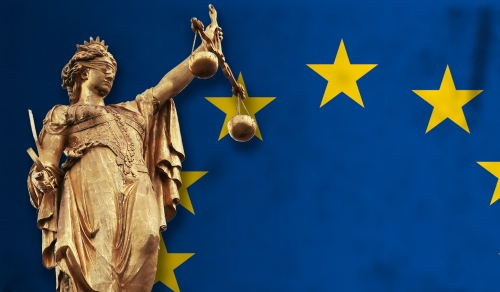
UE contre Hongrie
De manière assez similaire, lorsqu’en 2011 Viktor Orbán, fort d’une majorité constitutionnelle au parlement, a introduit une nouvelle constitution qui restreignait les compétences de la Cour constitutionnelle hongroise et abaissait l’âge de la retraite des juges à 62 ans, de manière à éliminer les juges qui avaient commencé leur carrière sous le régime communiste, la Commission européenne a pris le parti de ceux qui voyaient en ces réformes une menace pour l’État de droit et pour la démocratie. Elle a alors porté la question de l’âge de la retraite devant la CJUE qui a estimé en novembre 2012 que « l’abaissement radical de l’âge de la retraite des juges hongrois constitue une discrimination fondée sur l’âge non justifiée », et la Hongrie a dû porter l’âge de la retraite des juges à 65 ans, soit l’âge standard de la retraite dans ce pays. En juin 2011, le Parlement européen a de son côté adopté une résolution critiquant la nouvelle Loi Fondamentale hongroise parce qu’elle serait « susceptible de mettre en péril l’indépendance de la justice hongroise », notamment à cause des « dispositions portant sur la nouvelle Cour constitutionnelle hongroise ». Autre exemple : en juin 2019, la Commission européenne a adressé au Conseil une recommandation sur la Hongrie dans laquelle elle explique que « l’équilibre des pouvoirs, crucial pour assurer l’indépendance de la justice, a été encore affaibli dans le système des tribunaux ordinaires. Le Conseil national de la magistrature fait face à des difficultés croissantes pour exercer un contrepoids face aux pouvoirs du Président de l’Office national de la justice. Cela fait naître des inquiétudes concernant l’indépendance judiciaire. » Sans surprise, tandis que les membres du Conseil national de la magistrature sont des juges nommés par d’autres juges, le président de l’Office national de la justice est nommé par le Parlement. Ici encore, la Commission européenne, tout comme le Parlement européen, attaque la Hongrie pour avoir mis en place un contrôle parlementaire sur des juges nommés (et non élus), comme si l’État de droit et la démocratie ne pouvaient être garantis que par l’existence d’un pouvoir judiciaire totalement indépendant, et comme si un pouvoir judiciaire contrôlé uniquement par lui-même était en soi la meilleure garantie de démocratie.
Pourquoi l’UE n’a-t-elle jamais remis en cause le principe de la souveraineté illimitée du Parlement britannique ?
 Si c’était le cas, les institutions de l’UE auraient dû mettre le Royaume-Uni sous le feu des projecteurs dès son adhésion au bloc européen en 1973, ou au minimum dès l’entrée en vigueur du traité de Lisbonne en 2009, puisque ce traité a incorporé dans le droit européen la Charte des droits fondamentaux et l’obligation de souscrire à la Convention européenne des droits de l’homme. Il est vrai que le protocole n° 30 de la Charte des droits fondamentaux stipule explicitement que « La Charte n’étend pas la faculté de la Cour de Justice de l’Union européenne, ou de toute juridiction de la Pologne ou du Royaume-Uni, d’estimer que les lois, règlements ou dispositions, pratiques ou action administratives de la Pologne ou du Royaume-Uni sont incompatibles avec les droits, les libertés et les principes fondamentaux qu’elle réaffirme. ». Mais alors, en vertu dudit Protocole, ce qui s’appliquait au Royaume-Uni jusqu’au Brexit devrait s’appliquer à la Pologne aussi, ce qui n’est manifestement pas le cas aux yeux de la Commission européenne et de la CJUE (voir le jugement du 19 novembre 2019 à propos du Protocole n° 30 et de l’application de la Charte des droits fondamentaux de l’Union européenne à la République de Pologne et au Royaume-Uni : « il ne remet pas davantage en question l’applicabilité de la Charte en Pologne et n’a pas pour objet d’exonérer la République de Pologne de l’obligation de respecter les dispositions de la Charte »).
Si c’était le cas, les institutions de l’UE auraient dû mettre le Royaume-Uni sous le feu des projecteurs dès son adhésion au bloc européen en 1973, ou au minimum dès l’entrée en vigueur du traité de Lisbonne en 2009, puisque ce traité a incorporé dans le droit européen la Charte des droits fondamentaux et l’obligation de souscrire à la Convention européenne des droits de l’homme. Il est vrai que le protocole n° 30 de la Charte des droits fondamentaux stipule explicitement que « La Charte n’étend pas la faculté de la Cour de Justice de l’Union européenne, ou de toute juridiction de la Pologne ou du Royaume-Uni, d’estimer que les lois, règlements ou dispositions, pratiques ou action administratives de la Pologne ou du Royaume-Uni sont incompatibles avec les droits, les libertés et les principes fondamentaux qu’elle réaffirme. ». Mais alors, en vertu dudit Protocole, ce qui s’appliquait au Royaume-Uni jusqu’au Brexit devrait s’appliquer à la Pologne aussi, ce qui n’est manifestement pas le cas aux yeux de la Commission européenne et de la CJUE (voir le jugement du 19 novembre 2019 à propos du Protocole n° 30 et de l’application de la Charte des droits fondamentaux de l’Union européenne à la République de Pologne et au Royaume-Uni : « il ne remet pas davantage en question l’applicabilité de la Charte en Pologne et n’a pas pour objet d’exonérer la République de Pologne de l’obligation de respecter les dispositions de la Charte »).
Tandis que l’on reproche à Varsovie et Budapest des réformes décrites comme constituant un abus de pouvoir par le parlement et comme remettant en cause le système d’équilibre et de séparation des pouvoirs et donc, paraît-il, l’État de droit et la démocratie, dans l’une des plus anciennes démocraties d’Europe la souveraineté du parlement est définie de la manière suivante : « La souveraineté parlementaire est un principe de la constitution britannique. En vertu de ce principe, le Parlement est l’autorité juridique suprême du Royaume-Uni qui peut adopter ou abroger toute loi. D’une manière générale, les tribunaux ne peuvent pas annuler ses lois et aucun Parlement ne peut adopter de lois que les futurs Parlements ne pourront pas modifier. La souveraineté parlementaire est l’élément le plus important de la constitution britannique. »
La moitié des juges de la Cour suprême polonaise et sa première présidente se sont arrogé en janvier le droit d’invalider une loi adoptée par le Parlement, en se fondant sur le jugement de la CJUE de novembre où il était dit que le droit européen est supérieur aux lois nationales, et en arguant du fait que le deuxième alinéa de l’article 19, par. 1, du traité sur l’Union européenne stipule que « Les États membres établissent les voies de recours nécessaires pour assurer une protection juridictionnelle effective dans les domaines couverts par le droit de l’Union ». Malheureusement, la Commission européenne soutient ouvertement cette attitude clairement inconstitutionnelle au nom du principe de l’application directe du droit européen. En Pologne, seul le Tribunal constitutionnel a la capacité d’invalider des lois approuvées par le Parlement, et c’est pourquoi les juges constitutionnels polonais ont invalidé le 20 avril 2020 cette résolution adoptée le 23 janvier à la Cour suprême, la considérant comme non conforme à la Constitution polonaise et au droit européen. En même temps, dans un autre pays ayant appartenu à l’Union européenne jusqu’en janvier 2020, le Parlement « peut adopter ou abroger toute loi » et « les tribunaux ne peuvent pas annuler ses lois », ce qui n’a jamais posé problème à la Commission européenne actuelle ni à aucune Commission antérieure.
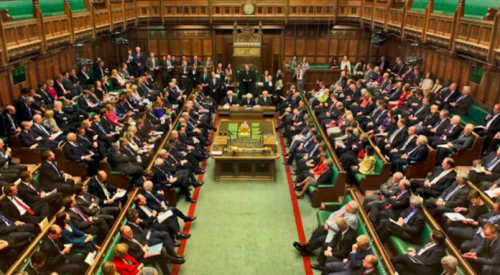
Par ailleurs, le Royaume-Uni n’a pas de cour constitutionnelle et sa Cour suprême, qui est considérée par de nombreux observateurs comme contraire à la tradition parlementaire britannique, n’a été créé qu’en 2009 par une loi promulguée par le Parlement sous le gouvernement travailliste de Tony Blair. Puisque d’après la constitution britannique « aucun Parlement ne peut adopter de lois que les futurs Parlements ne pourront pas modifier », la Cour suprême britannique pourrait facilement être abolie par la majorité parlementaire actuelle. Il se trouve que le nouveau Procureur général pour l’Angleterre et le pays de Galles nommé par le premier ministre Boris Johnson en février, Suella Braverman, est d’avis que, pour le bien de la démocratie, le Parlement doit récupérer la souveraineté qui lui a été confisquée non seulement par l’Union européenne mais aussi par les tribunaux. Mme Braverman a écrit en janvier que l’arrêt par lequel la Cour suprême avait décidé en septembre que la suspension du Parlement par Boris Johnson était illicite était un nouvel exemple de « l’intrusion continue et chronique des juges » sur le terrain de la politique. Elle a critiqué l’« activisme judiciaire » et déclaré : « Oui, les tribunaux doivent agir pour contenir les abus de pouvoir par le gouvernement, mais si un petit nombre de juges non élus et n’ayant de comptes à rendre à personne continuent de déterminer les grandes politiques publiques en s’opposant aux décideurs élus, notre démocratie ne peut pas être qualifiée de représentative. La légitimité du parlement est sans égale et c’est la raison pour laquelle nous devons reprendre les commandes, non seulement aux dépens de l’UE, mais aussi de l’appareil judiciaire ». En tant que procureur général, Braverman est maintenant procureur en chef pour l’Angleterre et le Pays de Galles et premier conseiller juridique du gouvernement.
Dans un article intitulé « Réparer la Cour suprême devrait être la priorité constitutionnelle de Boris Johnson », l’éditorialiste du Telegraph Charles Moore se moque de la vision d’un Brexit qui serait « une lutte entre les ‘populistes’ sans vergogne et les justes déterminés à résister à tout ce qui pourrait avoir ‘un effet extrême sur les fondements de notre démocratie’ », les derniers mots étant une citation de la décision de septembre de la Cour suprême qui avait invalidé la suspension du Parlement par Johnson quand l’opposition anti-Brexit, aidée par le Speaker John Bercow, avait pris le contrôle de l’ordre du jour de la Chambre des communes tout en refusant de nouvelles élections. Pour que cela ne se reproduise pas à l’avenir, Boris Johnson a promis d’abroger la loi de 2011 sur la durée fixe du Parlement afin de redonner au gouvernement la capacité de convoquer des élections législatives au moment où il le souhaite. Moore suggère aussi que le gouvernement et sa majorité au Parlement trouvent le moyen de restaurer une prérogative de la prorogation (suspension du Parlement pour une durée déterminée) qui ne doit pas être soumise au contrôle des juges. Il estime en outre qu’« il faut revoir le panel ‘indépendant’ chargé de nommer les juges, qui donne à l’establishment une capacité presque illimitée d’auto-réplication » En effet, écrit Moore, la « Déclaration des droits de 1689 […] protège la liberté politique en insistant pour qu’aucune ‘délibération du Parlement’ ne puisse être ‘annulée’ par un tribunal », et « il n’y avait jamais eu auparavant de séparation formelle des pouvoirs dans ce pays. C’était mieux ainsi », conclut l’éditorialiste.
Les gens comme Małgorzata Gesdorf – la première présidente de la Cour suprême polonaise jusqu’au 30 avril – ou Věra Jourová – la Vice-présidente de la Commission européenne pour les Valeurs et la Transparence qui remet aujourd’hui en cause le droit qu’a le Parlement polonais de nommer des membres de son Conseil national de la magistrature (KRS) – pensent-ils donc aussi que l’État de droit et la démocratie sont menacés en Grande-Bretagne à cause d’une séparation des pouvoirs insuffisante ?
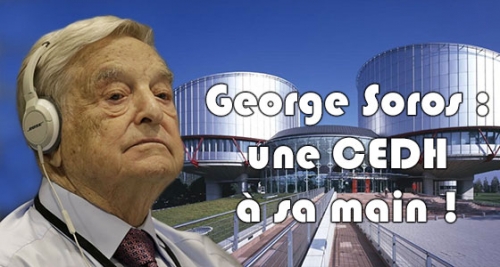
Les juges de Soros à la Cour européenne des droits de l’Homme
Une autre question est de savoir si les « juges non élus et n’ayant de comptes à rendre à personne » qui siègent à la CJUE et à la CEDH sont vraiment indépendants et impartiaux. La CEDH en particulier soulève de sérieux doutes. S’il ne s’agit pas d’une institution de l’Union européenne, c’est elle qui interprète la Convention européenne de sauvegarde des droits de l’homme et des libertés fondamentales. Or « les droits fondamentaux, tels qu’ils sont garantis par la Convention européenne de sauvegarde des droits de l’Homme et des libertés fondamentales et tels qu’ils résultent des traditions constitutionnelles communes aux États membres, font partie du droit de l’Union en tant que principes généraux. » (art. 6, par. 3, du Traité sur l’Union européenne). Au cours de la décennie écoulée, les jugements de la CEDH ont imposé à l’Italie la légalisation des unions homosexuelles et à l’Autriche l’adoption des enfants par le « deuxième parent » dans les couples homosexuel. La CEDH a aussi exercé des pressions sur la Pologne en faveur d’une libéralisation de l’avortement tandis que la Hongrie a été forcée d’abolir la perpétuité réelle (la prison à vie sans possibilité de libération conditionnelle). Non seulement la CEDH est-elle souvent accusée d’activisme judiciaire en raison de ses interprétations souvent très libres et militantes d’une Convention de sauvegarde des droits de l’homme et des libertés fondamentales écrite en termes généraux, mais ce reproche est désormais conforté par un rapport récemment publié par le Centre européen pour le droit et la justice (ECLJ), une ONG internationale dédiée à la protection des droits de l’homme. On trouve en effet dans ce rapport une liste des juges de la CEDH ayant des liens étroits avec les ONG actives devant cette même CEDH. Comme on peut le lire dans l’introduction du rapport de l’ECLJ, « au moins 22 des 100 juges permanents ayant siégé à la Cour européenne des droits de l’homme (CEDH) entre 2009 et 2019 sont anciens responsables ou collaborateurs de sept ONG fortement actives auprès de cette Cour. Douze juges sont liés au réseau de l’Open Society Foundation (OSF), sept aux comités Helsinki, cinq à la Commission Internationale des Juristes, trois à Amnesty International, un à Human Rights Watch, un à Interights et un à l’A.I.R.E. Centre. L’Open Society se distingue par le nombre de juges qui lui sont liés et par le fait qu’elle finance les 6 autres organisations citées dans ce rapport. Depuis 2009, on recense au moins 185 affaires dans lesquelles l’une de ces sept ONG est officiellement impliquée dans la procédure. Parmi celles-ci, dans 88 cas, des juges ont siégé dans une affaire dans laquelle était impliquée l’ONG avec laquelle ils étaient liés. (…) Sur la même période, on observe seulement 12 cas de déports dans lesquels un juge s’est retiré d’une affaire en raison, semble-t-il, d’un lien avec une ONG impliquée dans l’affaire. Cette situation met en cause l’indépendance de la Cour et l’impartialité des juges ; elle est contraire aux règles que la CEDH impose elle-même aux États en la matière. C’est d’autant plus problématique que le pouvoir du tribunal est exceptionnel. »
La démocratie en Occident menacée par l’activisme judiciaire plutôt que par la souveraineté parlementaire
Et si donc la véritable menace pour la démocratie occidentale aujourd’hui ne venait pas de « populistes sans vergogne » rétablissant un certain contrôle parlementaire sur le pouvoir judiciaire, mais plutôt de l’attitude de ces « justes déterminés à résister à tout ce qui pourrait avoir ‘un effet extrême sur les fondements de notre démocratie’ », et de leur volonté de mettre à la merci d’un gouvernement de juges « éclairés » toutes les lois adoptées par les parlements élus ?
 Le problème n’est pas uniquement européen. Quand la Cour suprême des États-Unis a imposé la légalisation du « mariage gay » dans les 50 États de l’Union en 2015, le juge dissident Antonin Scalia (photo) a qualifié cette décision d’insulte à la démocratie et il a accusé la Cour suprême dont il faisait partie de chercher de plus en plus souvent à créer les politiques de la nation plutôt qu’à se poser en arbitre. « La décision prise aujourd’hui veut dire que mon dirigeant et le dirigeant des 320 millions d’Américains vivant entre les deux côtes, c’est une majorité des neuf juristes siégeant à la Cour suprême », a alors écrit Scalia. « Cette pratique de la révision constitutionnelle par un comité non élu de neuf personnes, toujours accompagnée (comme c’est le cas aujourd’hui) d’éloges excessifs de la liberté, prive le peuple de la liberté la plus importante qu’il s’était affirmé dans la Déclaration d’Indépendance et qu’il avait obtenu par la révolution de 1776 : la liberté de se gouverner lui-même. »
Le problème n’est pas uniquement européen. Quand la Cour suprême des États-Unis a imposé la légalisation du « mariage gay » dans les 50 États de l’Union en 2015, le juge dissident Antonin Scalia (photo) a qualifié cette décision d’insulte à la démocratie et il a accusé la Cour suprême dont il faisait partie de chercher de plus en plus souvent à créer les politiques de la nation plutôt qu’à se poser en arbitre. « La décision prise aujourd’hui veut dire que mon dirigeant et le dirigeant des 320 millions d’Américains vivant entre les deux côtes, c’est une majorité des neuf juristes siégeant à la Cour suprême », a alors écrit Scalia. « Cette pratique de la révision constitutionnelle par un comité non élu de neuf personnes, toujours accompagnée (comme c’est le cas aujourd’hui) d’éloges excessifs de la liberté, prive le peuple de la liberté la plus importante qu’il s’était affirmé dans la Déclaration d’Indépendance et qu’il avait obtenu par la révolution de 1776 : la liberté de se gouverner lui-même. »
Sans aller aussi loin, l’arrêt de juin 2018 de la Cour de justice de l’Union européenne qui a contraint les 28 États membres à reconnaître les effets juridiques des unions de même sexe porte lui aussi dans une certaine mesure atteinte à la liberté des peuples de l’Europe de se gouverner eux-mêmes. En effet, en vertu des traités européens qui ont été approuvés par leurs représentants élus, ces peuples n’avaient jamais sciemment renoncé à leur droit de décider souverainement de leurs transformations sociétales futures.
Et d’ailleurs, n’en déplaise à la Commission européenne et à la Cour de Justice de l’UE, les peuples de l’Union européenne n’ont jamais non plus formellement renoncé à leur droit de préserver ou rétablir une certaine forme de contrôle démocratique sur leur propre système judiciaire et de défendre la démocratie parlementaire contre l’activisme des juges militants.
Article publié originellement le 12 mars 2020 en anglais sur kurier.plus, le site de l’Institut de coopération polono-hongroise Wacław Felczak.
Traduit en français et mis à jour le 7 mai 2020 pour le Visegrád Post.
Extrait de: Source et auteur



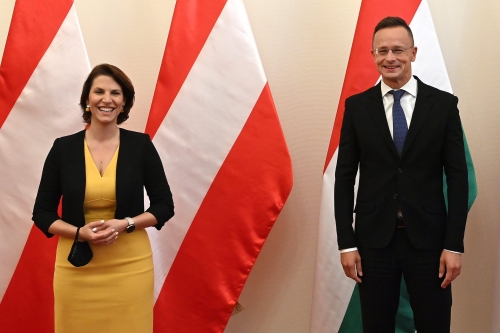

 del.icio.us
del.icio.us
 Digg
Digg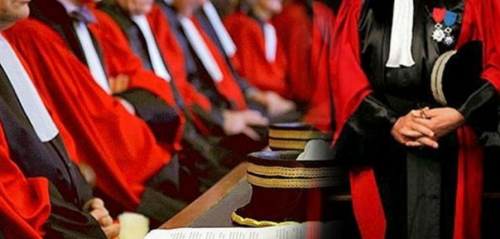
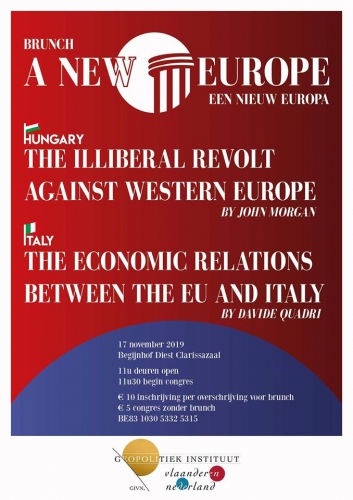
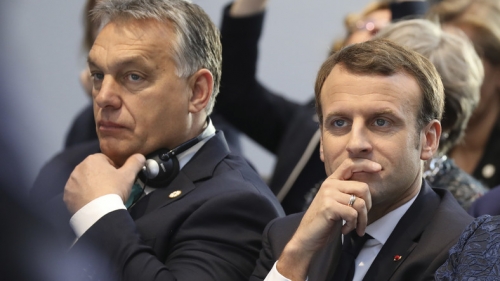
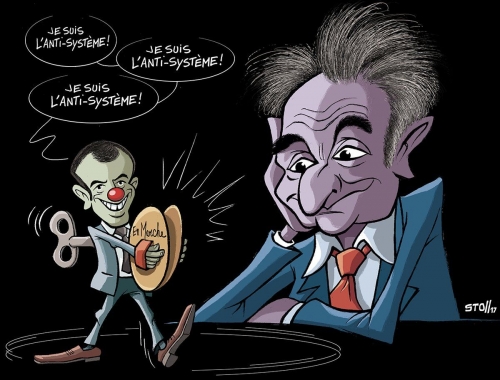
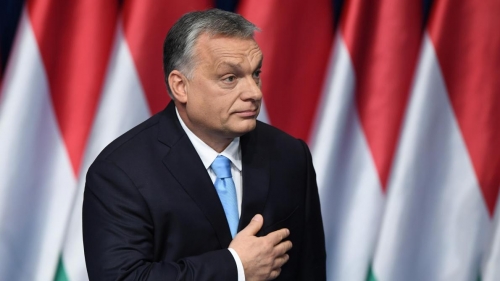
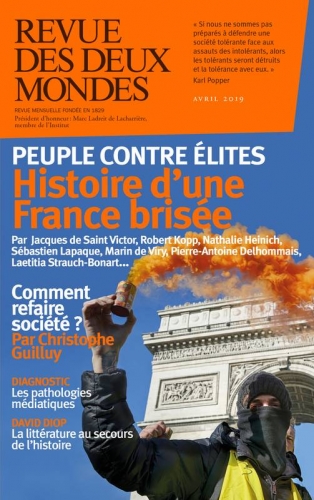 Or la conception illibérale de l’État, dont s’est réclamé Orban en 2014, apparaît comme une alternative interne à l’équilibre traditionnel des pouvoirs et , à l’extérieur, comme une révision de la politique étrangère et donc comme la chance d’une « autre gouvernance » de l’Union, dont le pivot serait désormais la nation, seul juge du bien commun.
Or la conception illibérale de l’État, dont s’est réclamé Orban en 2014, apparaît comme une alternative interne à l’équilibre traditionnel des pouvoirs et , à l’extérieur, comme une révision de la politique étrangère et donc comme la chance d’une « autre gouvernance » de l’Union, dont le pivot serait désormais la nation, seul juge du bien commun.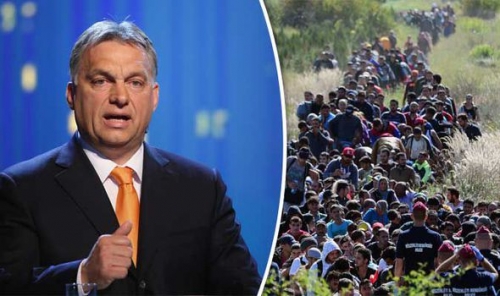
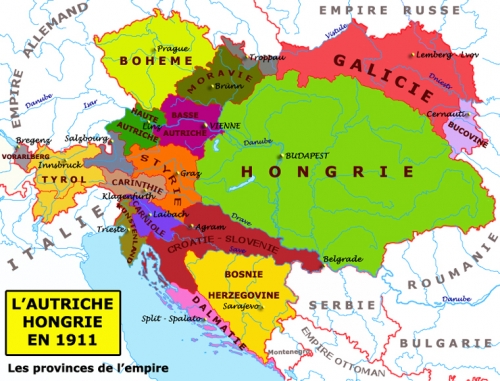
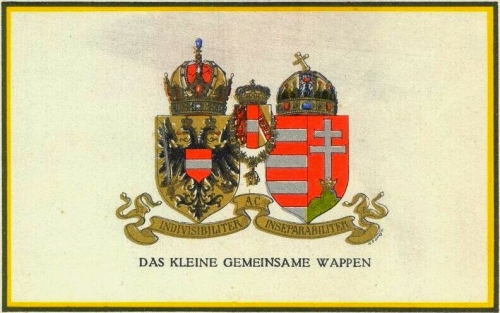
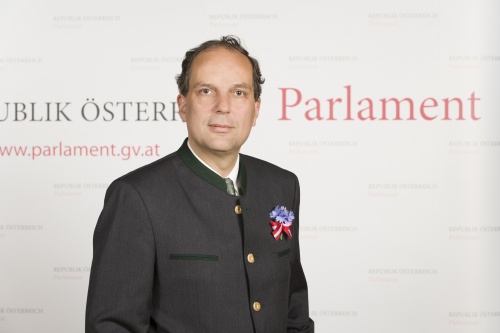
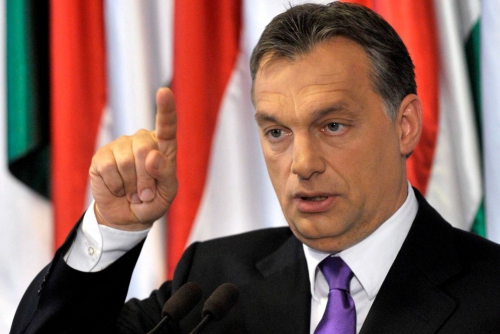
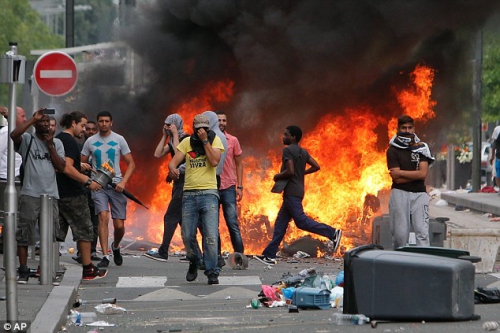
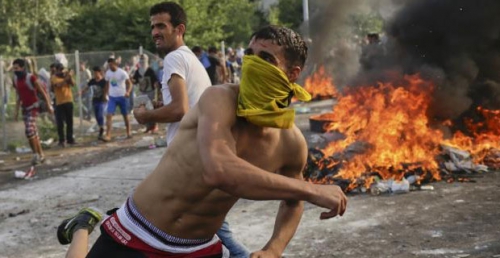
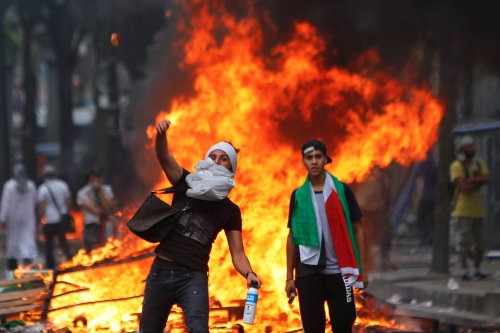
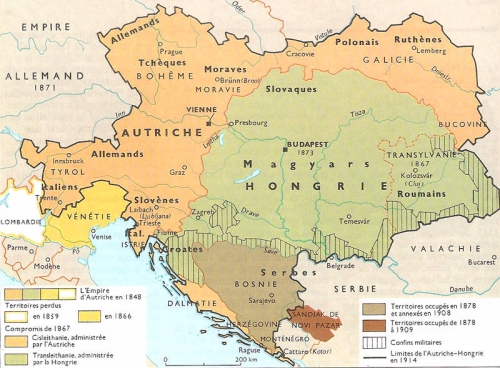
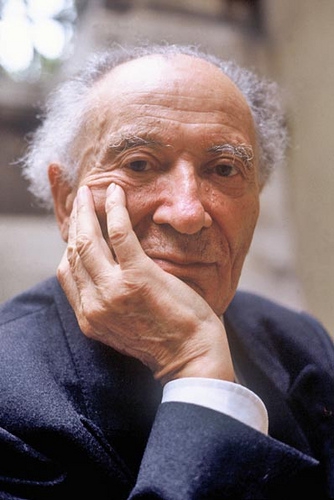 Alors que l’Europe civilisationnelle meurt jour après jour devant nous, sous les coups de boutoir conjugués du modernisme, du mondialisme et du consumérisme, il demeure fondamental de comprendre l’histoire de notre continent, si nous voulons encore croire à un avenir digne de ce nom… À ce titre j’ai récemment découvert, au gré de mes recherches, une petite merveille intellectuelle qui décrypte avec faits, objectifs et arguments circonstanciés, la mort programmée de l’Autriche-Hongrie. Cette dernière reste couramment mais improprement appelée Empire austro-hongrois, alors que son nom exact devrait être Double Monarchie austro-hongroise.
Alors que l’Europe civilisationnelle meurt jour après jour devant nous, sous les coups de boutoir conjugués du modernisme, du mondialisme et du consumérisme, il demeure fondamental de comprendre l’histoire de notre continent, si nous voulons encore croire à un avenir digne de ce nom… À ce titre j’ai récemment découvert, au gré de mes recherches, une petite merveille intellectuelle qui décrypte avec faits, objectifs et arguments circonstanciés, la mort programmée de l’Autriche-Hongrie. Cette dernière reste couramment mais improprement appelée Empire austro-hongrois, alors que son nom exact devrait être Double Monarchie austro-hongroise.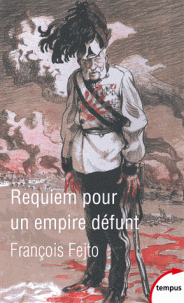 Effectivement avant la Grande Guerre, l’Empire jouait un rôle stabilisateur en Europe centrale, comme nous l’avons malheureusement appris à nos dépends depuis son homicide : Deuxième Guerre mondiale, agitations et instabilités politiques chroniques dans cette zone géographique, guerres ethnico-religieuses dans les années 90, etc. Nous citons également le texte introductif de Joseph Roth qui figure dans l’avant-propos, démontrant la cohésion des peuples derrière leur souverain légitime : « Dans cette Europe insensée des États-nations et des nationalismes, les choses les plus naturelles apparaissent comme extravagantes. Par exemple, le fait que des Slovaques, des Polonais et des Ruthènes de Galicie, des juifs encafetanés de Boryslaw, des maquignons de la Bácska, des musulmans de Sarajevo, des vendeurs de marrons grillés de Mostar se mettent à chanter à l’unisson le Gott erhalte (2) le 18 août, jour anniversaire de François-Joseph, à cela, pour nous, il n’y a rien de singulier (3). » Il n’est guère étonnant que les babéliens d’hier et d’aujourd’hui, pourfendeurs des frontières et des identités, ne comprennent pas la nature réelle et profonde de ce cosmopolitisme chrétien et monarchique qui heurte leurs convictions maçonniques…
Effectivement avant la Grande Guerre, l’Empire jouait un rôle stabilisateur en Europe centrale, comme nous l’avons malheureusement appris à nos dépends depuis son homicide : Deuxième Guerre mondiale, agitations et instabilités politiques chroniques dans cette zone géographique, guerres ethnico-religieuses dans les années 90, etc. Nous citons également le texte introductif de Joseph Roth qui figure dans l’avant-propos, démontrant la cohésion des peuples derrière leur souverain légitime : « Dans cette Europe insensée des États-nations et des nationalismes, les choses les plus naturelles apparaissent comme extravagantes. Par exemple, le fait que des Slovaques, des Polonais et des Ruthènes de Galicie, des juifs encafetanés de Boryslaw, des maquignons de la Bácska, des musulmans de Sarajevo, des vendeurs de marrons grillés de Mostar se mettent à chanter à l’unisson le Gott erhalte (2) le 18 août, jour anniversaire de François-Joseph, à cela, pour nous, il n’y a rien de singulier (3). » Il n’est guère étonnant que les babéliens d’hier et d’aujourd’hui, pourfendeurs des frontières et des identités, ne comprennent pas la nature réelle et profonde de ce cosmopolitisme chrétien et monarchique qui heurte leurs convictions maçonniques…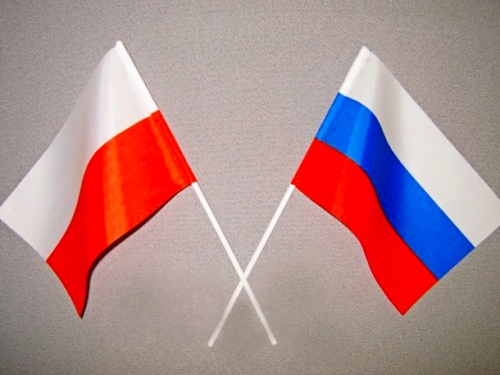
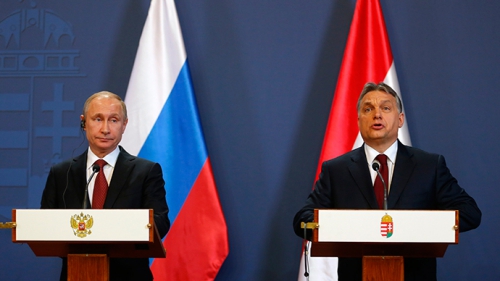
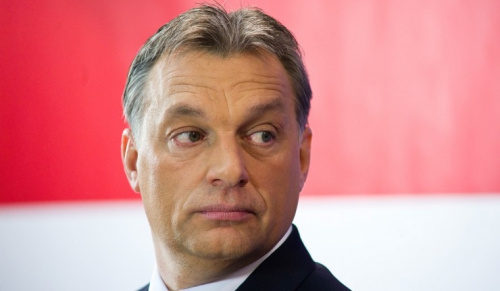
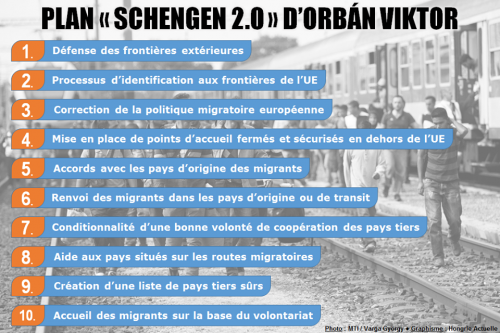
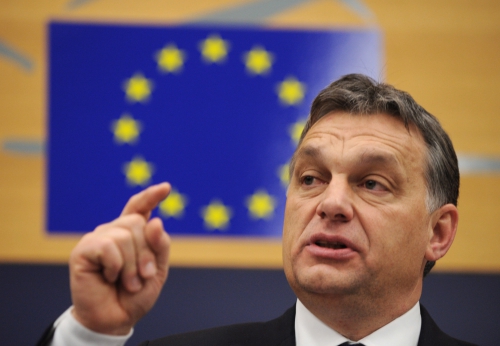
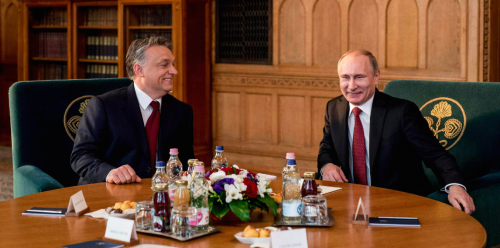

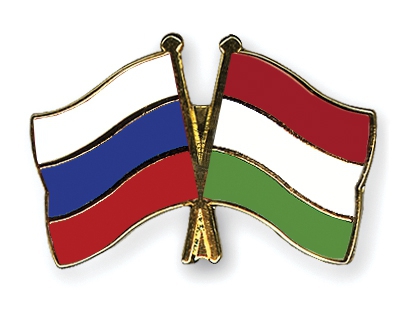
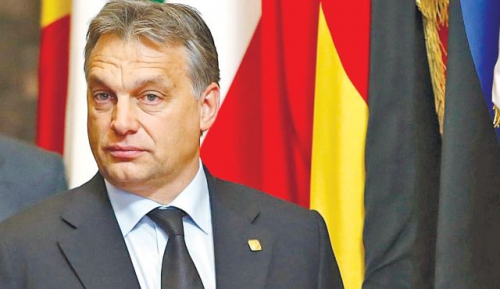
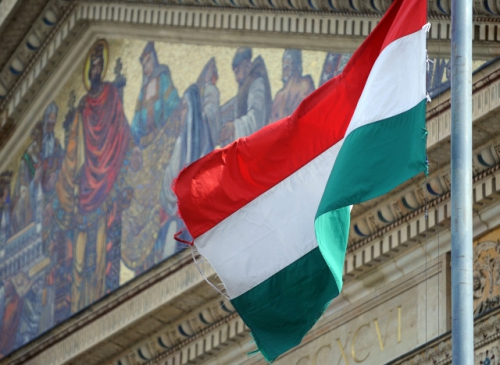
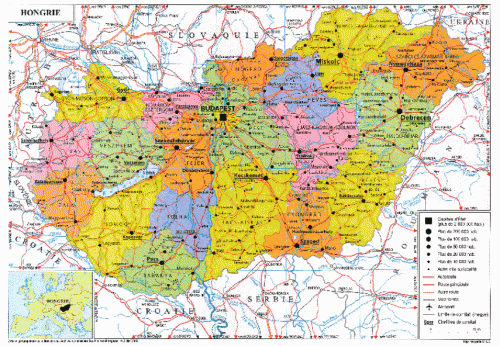
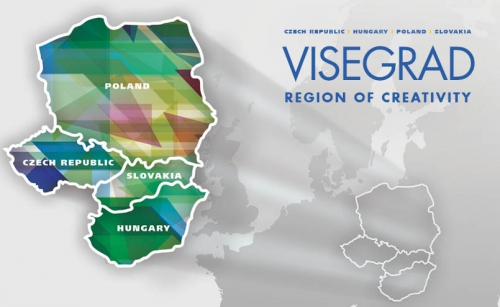
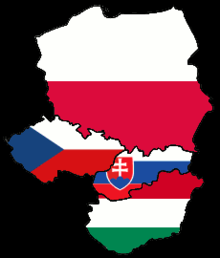 Le Groupe de Visegrád va certainement être de plus en plus écouté au sein même de l'Union européenne. Ils proposent la restauration des frontières pour contrôler l'afflux de migrants, notamment dans les pays qui sont sur la route de la migration vers l'Allemagne. Ils mettent également, au service des gouvernements qui en feront la demande, une douane composée de policiers des différents pays du Groupe pour surveiller les frontières et assurer leur étanchéité.
Le Groupe de Visegrád va certainement être de plus en plus écouté au sein même de l'Union européenne. Ils proposent la restauration des frontières pour contrôler l'afflux de migrants, notamment dans les pays qui sont sur la route de la migration vers l'Allemagne. Ils mettent également, au service des gouvernements qui en feront la demande, une douane composée de policiers des différents pays du Groupe pour surveiller les frontières et assurer leur étanchéité. 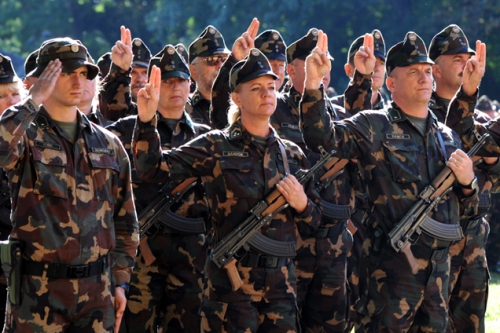
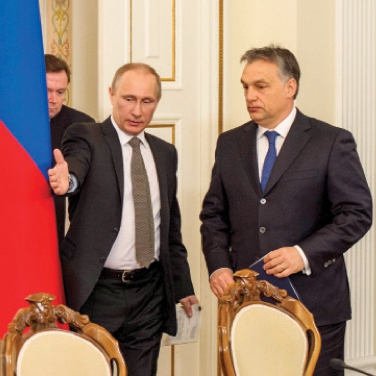 Echoing Putin and other leaders, Orban has condemned NGOs as a fifth column. Though as a young man, Orban received a four-month scholarship from the Soros Foundation to study in Oxford, he is fingering the Budapest-born Soros as an unwelcome meddler in Hungary and the rest of Europe. Thanks for the chump change, George, but bug off!
Echoing Putin and other leaders, Orban has condemned NGOs as a fifth column. Though as a young man, Orban received a four-month scholarship from the Soros Foundation to study in Oxford, he is fingering the Budapest-born Soros as an unwelcome meddler in Hungary and the rest of Europe. Thanks for the chump change, George, but bug off!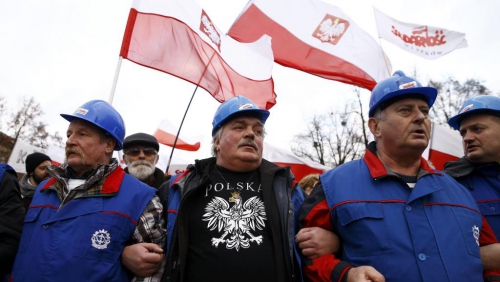
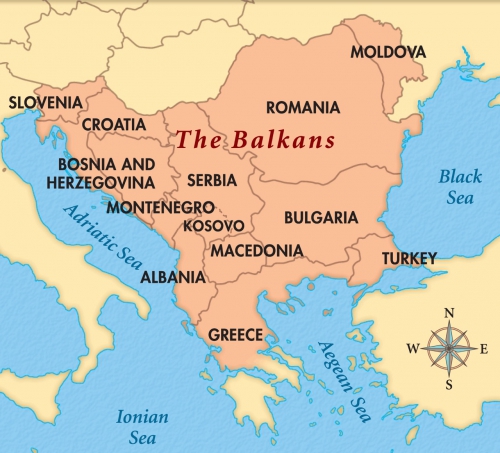
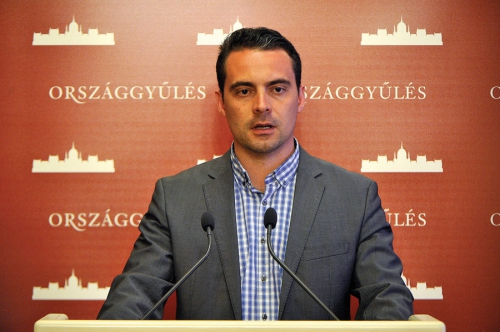
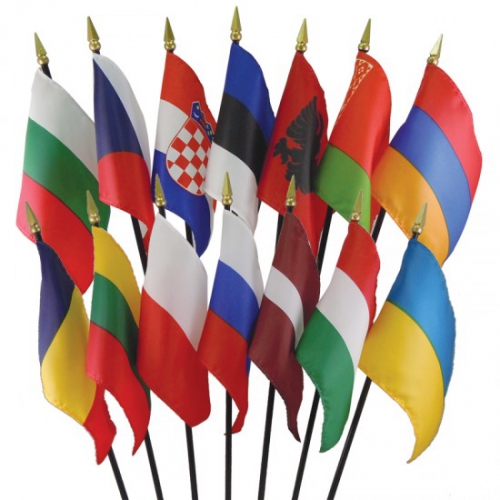
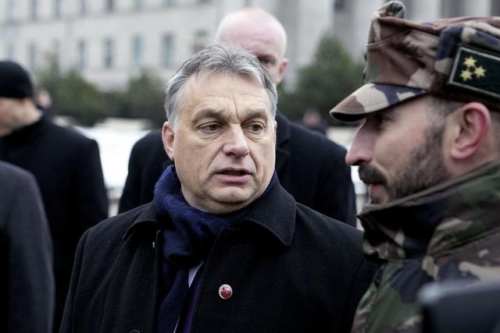
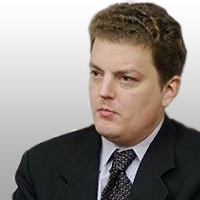 Before I begin, I want to make a disclaimer. I’ll be discussing a number of groups that I’ve had contact with, but I don’t want that to be seen as an unqualified endorsement of any of their programs or policies. I think that all of them are interesting, but I’m not here to act as a spokesman or promoter for any of them.
Before I begin, I want to make a disclaimer. I’ll be discussing a number of groups that I’ve had contact with, but I don’t want that to be seen as an unqualified endorsement of any of their programs or policies. I think that all of them are interesting, but I’m not here to act as a spokesman or promoter for any of them.